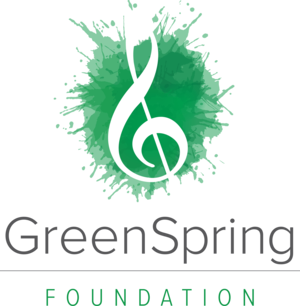About the Program
The Harp Therapy Outreach Program, a national first, was founded in 1995 as an outgrowth of the American Youth Harp Ensemble. Today, it has matured into a nationally recognized program pairing youth mentors with disabled peers through partnerships with community agencies and schools region-wide.
Harping in the Hospitals
Through the Harping in the Hospital Outreach Program, partnering with local health-care facilities and hospitals, we serve hundreds of patients, residents, and families in the Richmond region.
In addition to the obvious qualitative benefits, the program is designed to measure the quantitative impact of live harp music on health and well-being. Past studies have included the measurement of pain reduction, post-op recovery time, sleep, heart rate, blood pressure, breathing rate, and the reduction of the effects of Sundowner's Syndrome in Alzheimer patients.
The AYHE is on the forefront of the national Harp Therapy movement with director Lynnelle Ediger having been an early founder in 1999 and twice hosting the International Harp Therapy Conference. However, use of the harp as a therapeutic instrument is not a new concept, the harp has traditionally been used as an instrument of healing across cultures and millennium. The earliest example of the harp being used as a therapeutic instrument is depicted in cave drawings in France dating to 30,000 B.C.
As patients and health care providers turn to holistic approaches to health and well-being, the harp is a natural fit due to the timber (sound) and vibration. Harps may now be found in numerous health-care settings from the Oncology areas, Neonatal ICU, Adult ICU, to Hospice and even in the Operating Room! Patients, family and staff alike benefit from the stress relieving power of the harp.
Participating hospitals:
- Bon Secours Richmond Health Systems, specifically:
- St. Mary's
- Memorial Regional
- St. Francis with 12 hours of harp music provided weekly.
- MCV VCU Massey Cancer Center, Dalton Clinic
Harp Therapy
Our son, Bert, who has autism spectrum disorder, has participated in the HARP Therapy Outreach Program for two years. As well as providing pure enjoyment, the lessons help Bert with focus, hand-eye coordination, listening skills, and sense of accomplishment. Bert is so proud when he plays a scale or simple tune from a page of written music. He often comes out of the lesson with a big smile, saying ‘I did it!’
— C. Kirby & E. Stickley, parents of Bert
The Harp Therapy Outreach Program offers harp and music instruction to at-risk youth and students with mental and physical disabilities, including mental retardation, Cerebral Palsy, Autism, Down Syndrome, and other emotional and neurological disorders.
This life-transforming experience not only provides these students healthy social interactions with their peers, from whom they are often isolated, but also results in clinically documented improvements in behavior and occupational motor skills. An innovative program that utilizes the harp and music instruction to develop musical, psychosocial, and physical skills in disabled children and youth, enabling them to build life and social skills and develop friendships and peer groups that otherwise would be difficult to acquire.
Through the program, students with disabilities build life and social skills and develop friendships and peer groups, opportunities critical for but seldom available to teens with disabilities. Mentor students benefit through experience in a viable application of their music study, giving them direction and strengthening their chances for a college education and a career in music.
In addition to peer mentors, a professional harpist/educator, music therapist and occupational therapist staff classes. A weekly evaluation tool is used to measure the efficacy of the harp as a therapeutic tool: progress in musical, psychosocial and physical goals continue to be recorded.
In June of 2003 and December of 2004, the Harp Therapy Outreach Program was featured locally and nationally on the PBS children's program, ZOOM!
Schedule
Harp Therapy Outreach Program
Fridays, Class 1: 3:00-3:30pm
Fridays, Class 2: 3:30-4:00pm
Fridays, Class 5:45-6:15pm
